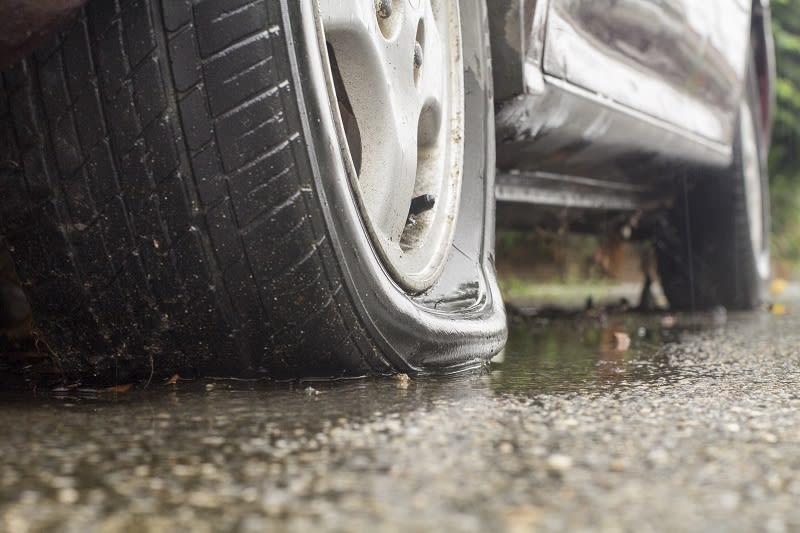While the reduction in the amount of daily commutes is good news for the environment, it’s not great for neglected motors.
From battery woes to filter failures, experts at Select Car Leasing have urged owners to give cars stuck on driveways some TLC to ensure they don’t end up with a hefty garage bill.
And it’s not just the vehicles suffering – drivers may be out of practice, too.
James O’Malley, director of Select Car Leasing, said: “Vehicles left parked outside homes for days or weeks on end can really suffer as a result.
“It’s important for motorists to be aware of the potential problems this inactivity may cause, and the best solutions.
“Cars need to be driven fairly regularly, and not just for short journeys. Give your motor a good run or over time you will risk a multitude of costly problems.”
Here, the boffins at the UK’s leading vehicle leasing firm have come up with the top four lockdown-related car nightmares that you’ll be wise to avoid.

Rusty driving skills
“If you haven’t been driving regularly since the start of the first lockdown last March, it’s very easy to feel nervous, overwhelmed and slightly rusty when you do return to busy roads,” said Mr O’Malley.
“It’s also easy to fall into bad habits if you haven't been doing these things routinely over the past few months.”
The top tips for getting back out there on the roads safely include:
- Shoulder checking blindspots;
- Not assuming it’s safe just because someone flashes you;
- Paying close attention to the number of road markings;
- Leaving a bottle of water in the car at all times in case you run out of washer fluid;
- Opening a window at tricky junctions;
- Not having music up too loud.
Tyre flat spots
Long stationary spells can have a detrimental effect on tyres, causing ‘flat spots’ which can play havoc with handling and lead to blow-outs.
Mr O’Malley said: “When you drive your car, your tyres go through hundreds of rotations every minute, becoming warm and pliable in the process.
“But when you leave a car standing for several months at a time, the tyres may not automatically correct themselves – and drivers are left with serious problems.
“The first indication something is wrong will be strong vibrations and a sense of your car ‘shimmying’ down the road.”
Flat-spotting can also compromise braking and increase the likelihood of a serious puncture.

Diesel Particulate Filter
Diesel owners need to be aware of a part fitted to their cars known as the Diesel Particulate Filter or 'DPF'.
DPFs became mandatory on all new UK models in 2009 to prevent soot passing into the atmosphere, making vehicles more eco-friendly.
But the soot in the filter needs to burn off to regenerate the DPF, and this is achieved by driving longer distances.
“Short runs are the sworn enemy of the DPF,” said Mr O'Malley. “Due to the times we live in, it’s our worry that many diesel owners will end up using their cars only for short journeys to the supermarket rather than for longer drives.”
The best way to burn off the soot is to regularly treat your car to a 30 to 50-minute blast on the motorway.
Otherwise you could end up having to fork out up to £3,500 for a replacement.
Vermin invasion
Vehicles left idle for weeks and months could offer an inviting breeding ground for disease-spreading rodents.
Frequently starting engines and checking under the bonnet are the best ways to guard against an invasion of voles, mice or rats.
All three species can carry hantavirus, a potentially fatal kidney and respiratory disease contracted by breathing in spores contained in the droppings, urine and saliva of the critters.
“Stationary cars can also attract insects,” said Mr O’Malley. “Motorists need to make regular internal and external checks.”
These include inside the engine compartment, under the windscreen wipers, between the battery and frame, the engine air filter and in hoses and ducts of the heating and air conditioning system.
Tell-tale infestation signs to lookout for include droppings, urine, unpleasant smells and chewed wires and cables, especially under the bonnet.
Enjoyed this? Read our latest news:
- Best Car Lease Deals | February 2021
- Muscular new Mercedes-Benz C-Class enjoys electric makeover
- Vauxhall Insignia gains sporty new ‘GSi’ trim level
- Added petrol power for the Volkswagen Tiguan
-
Best Convertibles to lease in 2021
For all the latest reviews, advice and new car deals, sign up to our newsletter here.















